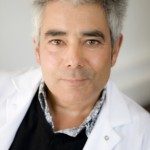Link to Pubmed [PMID] – 33347816
Link to DOI – S1473-3099(20)30602-210.1016/S1473-3099(20)30602-2
Lancet Infect Dis 2021 07; 21(7): e191-e201
In a 1945 Nobel Lecture, Sir Alexander Fleming warned against the overuse of antibiotics, particularly in response to public pressure. In the subsequent decades, evidence has shown that bacteria can become resistant to almost any available molecule. One key question is how the emergence and dissemination of resistant bacteria or resistance genes can be delayed. Although some clinicians remain sceptical, in this Personal View, we argue that the prescription of fewer antibiotics and shorter treatment duration is just as effective as longer regimens that remain the current guideline. Additionally, we discuss the fact that shorter antibiotic treatments exert less selective pressure on microorganisms, preventing the development of resistance. By contrast, longer treatments associated with a strong selective pressure favour the emergence of resistant clones within commensal organisms. We also emphasise that more studies are needed to identify the optimal duration of antibiotic therapy for common infections, which is important for making changes to the current guidelines, and to identify clinical biomarkers to guide antibiotic treatment in both hospital and ambulatory settings.

